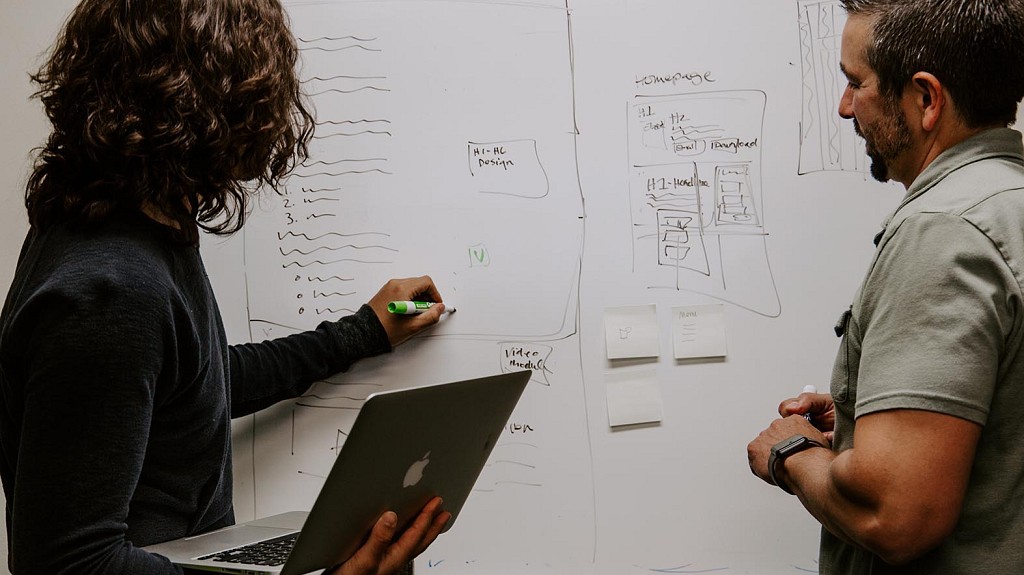Indhold
Links
Exams
For some students, the exam is an exciting day. Now they get to show what they have learned, feel the rush, and get the recognition they deserve. For others, the exam is filled with nervousness and perhaps insufficient knowledge on how to approach the exam situation.
On this page, you will find good advice on presentation techniques and how to make the best of your exam, both before, during and after.
The exam
It is natural to be nervous before an exam.
But how do you get to grips with your exam nerves?
Here are some ideas and guidance for how to work with and control your exam nerves so that they do not inhibit your performance.
Nervousness is an individual and personal feeling, and can be overwhelming, but there are many things you can do to deal with it. It can be helpful to understand your own unease and seek out techniques that can prevent or calm your exam nerves.
For instance, it is a good idea to prepare thoroughly. Needless to say, you must read up on the curriculum, but it is also worthwhile to familiarise yourself with the exam situation.
Furthermore, it is important to know where to seek help if your exam nerves get out of control.
Remember; nervousness is something you can work with and learn to tackle.

Before you go to the exam, it is a good idea to familiarise yourself with the exam situation. In other words, read the curriculum and the exam description so that you know what is expected of you. When you know what is expected of you, you become less nervous, and then there is more energy to focus on the content.
Give your brain an opportunity to unwind. Take the evening before the exam off and get a good night's sleep. Remember that the exam is a snapshot. A performance at a specific point in time for which you are awarded a grade. The awarded grade says nothing in general about you or your personality.
|
"We cannot completely control our emotions. However, there are some techniques you can use to alleviate your nervousness"
|
|
"Rehearse your presentation several times, preferable in front of someone who does not know your subject area"
|
If you wake up early on the day of your exam, then do something practical or go for a walk. Do not attempt to read a little extra before the exam. This will only unsettle you, and you will probably not get much out of it anyway.
When you enter the exam room, try to remember that the examiner and the co-examiner are also just human beings. They certainly know about nervousness and performance anxiety. And if you feel nervous, be open about it.
Before an oral exam, it’s a good idea to familiarize yourself with the structure of the exam; what will be the focus of the exam, and how much time do you have for your presentation? Furthermore, it is important that you know the details of your assignment, so that you can easily recall the key points and account for strengths and weaknesses. Remember that if you fall upon serious errors in your assignment it’s a good idea to include them in your presentation, and put forward how you would do it differently today.
Get to the exam in due time, exhale, and make yourself comfortable before entering. Look at your presentation as a unique possibility to show exactly how good you are when you are at your very best. Remember to smile and be open when you enter the room as it contributes to a nice and safe atmosphere.
If you have prepared a Power Point presentation, then make sure you have rehearsed your presentation thoroughly. Underline your key points, be precise and keep the time. Also, have in mind that your arguments have to be based on theory and avoid slang, as it undermines your academic authority. Finally show enthusiasm and passion for your subject matter – its contagious!
If you are nervous, then always let your teacher and censor know, they will always do their best to get you back on track!
|
"Nervousness is not a bad thing as such. It is your professional level, not you as a person, which will be assessed"
|
|
"Familiarise yourself with the structure of the exam"
|
|
"Know the details of your assignment"
|
|
"If you fall upon serious errors – include them in your presentation"
|
|
"If there is a question you do not understand, it is perfectly alright to ask the teacher to be more specific"
|
|
"Rehearse your presentation thoroughly"
|
|
"Your language has to be academic"
|
Presentation techniques

Make sure to show up for the written exam in good time. Find your chair, sit down and start getting ready. Unpack the things you are going to use. Read through the entire assignment and organise your time. Think about how many questions there are and how much time you can spend on each. If you feel stuck on a specific question, put it away for now and move on to the next. Then you can come back later with a fresh perspective.
Wear some clothes that you feel comfortable in as you will have to sit down for a long time to do the written exam.
|
"Make sure that you know which books and materials to bring to the exam"
|
|
"Read through the entire assignment and organise your time"
|
In many ways, an online exam is like a regular oral exam. Before your online exam, as before a regular exam, you must prepare thoroughly and also familiarise yourself with the programme curriculum and the exam framework, so that you know what is expected of you.
Of course, an online exam is a little different. The fact that the exam doesn’t take place in a physical space means that you must focus on slightly different factors and take a few other things into account than normally.
|
"Familiarise yourself with the programme curriculum and the exam framework"
|
|
"Test your technical setup before the exam, and make sure you have the materials you need"
|
|
"Make sure you look presentable, and tidy up your surroundings"
|

The feedback from the examiner and co-examiner is input you can use to raise your professional level. Keep in mind that this is not personal criticism. If it does not go well, remember this is not a reflection on you as a person. Once the exam is over and you have had a chance to get the exam at a distance, sit down and consider what went well and less well and what you may do differently next time.
If you have taken a group exam, it is a good idea to evaluate your feedback together. Perhaps there is something about the exam or the feedback which is unclear to you - and which your group members can help you understand. Or vice versa.
|
"It is a good idea to write down the feedback and use it the next time you are going to sit an exam"
|
|
"If you have taken a group exam, it is a good idea to evaluate your feedback together"
|
Here you can find tools and further inspiration. Please note that all the services are free of charge, but some require that you register as a user.
BOOKS
A student's guide to presentations, making your presentation count
Pitch perfect, how to say it right the first time, every time
|
Planning, knowledge and preparation are important tools for minimising anxiety during an exam
|
Presentation techniques
Before an oral exam, it’s a good idea to familiarize yourself with the structure of the exam; what will be the focus of the exam, and how much time do you have for your presentation? Furthermore, it is important that you know the details of your assignment, so that you can easily recall the key points and account for strengths and weaknesses. Remember that if you fall upon serious errors in your assignment it’s a good idea to include them in your presentation, and put forward how you would do it differently today.
Get to the exam in due time, exhale, and make yourself comfortable before entering. Look at your presentation as a unique possibility to show exactly how good you are when you are at your very best. Remember to smile and be open when you enter the room as it contributes to a nice and safe atmosphere.
If you have prepared a Power Point presentation, then make sure you have rehearsed your presentation thoroughly. Underline your key points, be precise and keep the time. Also, have in mind that your arguments have to be based on theory and avoid slang, as it undermines your academic authority. Finally show enthusiasm and passion for your subject matter – its contagious!
If you are nervous, then always let your teacher and censor know, they will always do their best to get you back on track!
|
"Familiarise yourself with the structure of the exam"
|
|
"Know the details of your assignment"
|
|
"If you fall upon serious errors – include them in your presentation"
|
|
"Your language has to be academic"
|
|
"Rehearse your presentation thoroughly"
|

If you wake up early on the day of your exam, then do something practical or go for a walk. Do not attempt to read a little extra before the exam. This will only unsettle you, and you will probably not get much out of it anyway.
When you enter the exam room, try to remember that the examiner and the co-examiner are also just human beings. They certainly know about nervousness and performance anxiety. And if you feel nervous, be open about it.
|
"Nervousness is not a bad thing as such. It is your professional level, not you as a person, which will be assessed"
|
|
"If there is a question you do not understand, it is perfectly alright to ask the teacher to be more specific"
|

